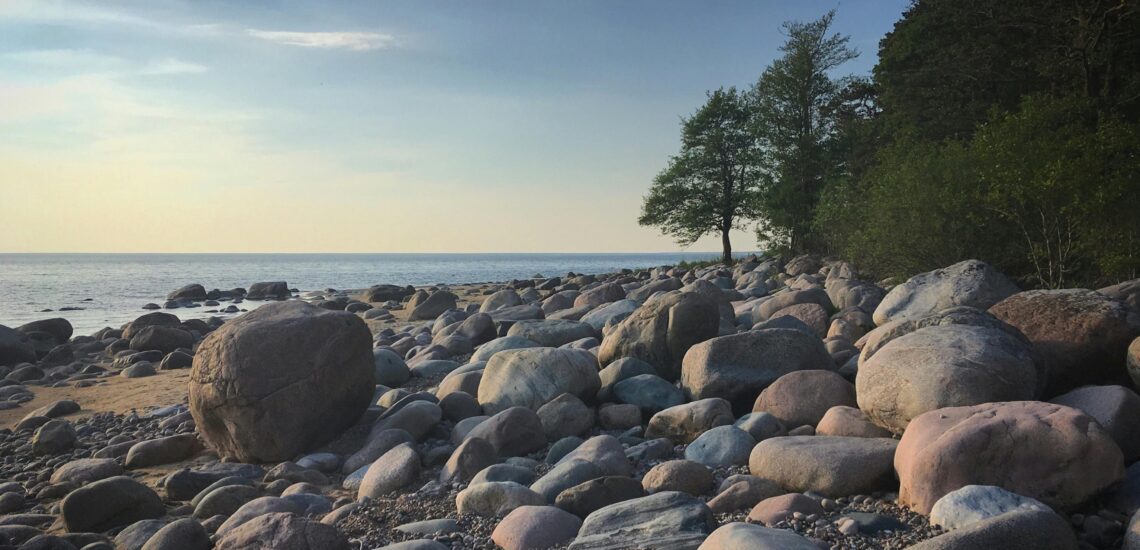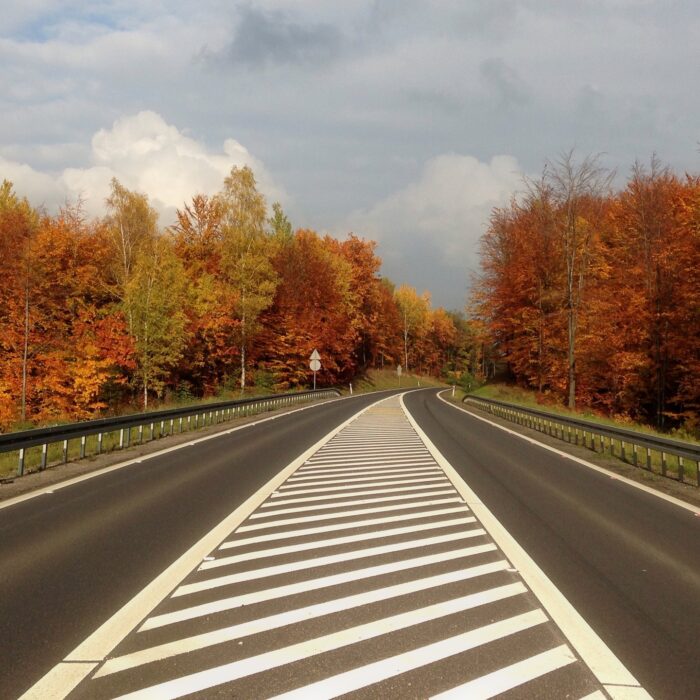10 Interesting Facts About Latvia
Quick facts about Latvia:
- Capital: Riga
- Population: Approximately 1.8 million
- Official Language: Latvian
- Government: Parliamentary republic
- Currency: Euro (EUR)
1 Fact: The Latvian flag is one of the oldest in the world
Latvian flag holds historical significance as one of the oldest national flags globally. Adopted on June 18, 1921, the flag features three horizontal stripes of maroon (or carmine), white, and maroon. Its design dates back to the early 13th century, making it a symbol deeply rooted in Latvia’s history and identity. The enduring presence of this tricolor flag reflects Latvia’s resilience and pride as a nation.
2 Fact: The Old Town in Riga is a UNESCO World Heritage Site
Riga’s Old Town, a UNESCO World Heritage Site since 1997, is a captivating blend of history and architectural splendor. Dating back to the early 13th century, this medieval marvel boasts cobblestone streets, Gothic spires, and landmarks like the Riga Cathedral, offering a journey through time. The preservation efforts have paid off, with the Old Town standing as a testament to Riga’s Hanseatic past and enduring spirit. Today, with over 500 buildings of historical significance, it remains a bustling hub, attracting visitors from around the globe.
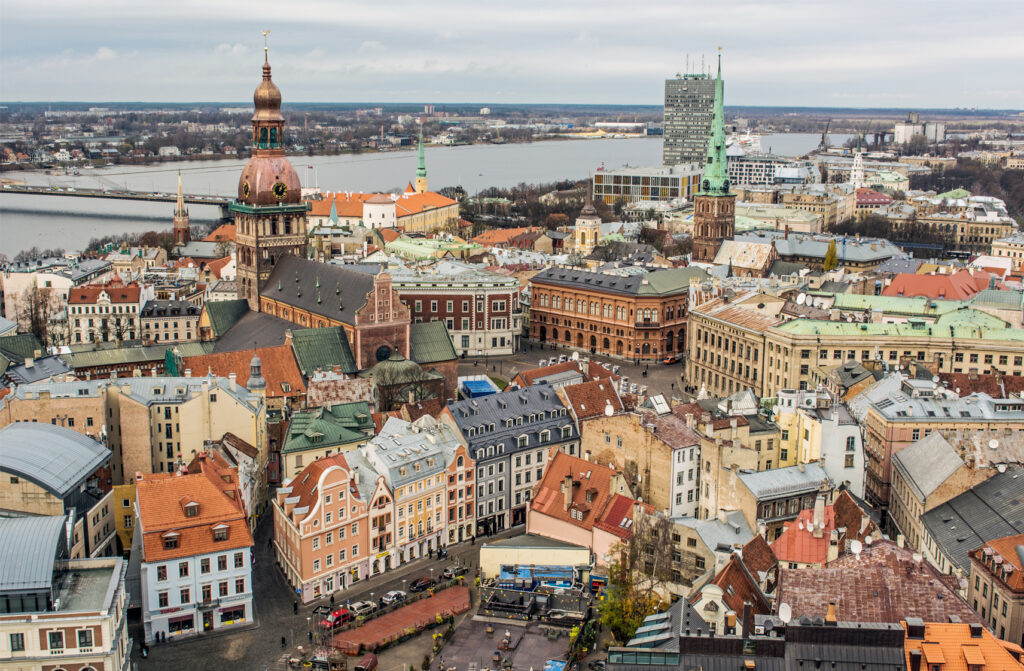 Troy David Johnston, (CC BY-NC 2.0)
Troy David Johnston, (CC BY-NC 2.0)3 Fact: Latvia is home to Europe’s widest waterfall
Venta Rapid (Ventas Rumba in Latvian). Located on the Venta River near the town of Kuldīga, this natural wonder spans an impressive 249 meters in width. The waterfall is renowned not only for its breadth but also for the annual spectacle of fish migration, as salmon and other species attempt to leap upstream. Venta Rapid stands as a unique and picturesque natural attraction in the Latvian landscape.
Note: If you plan to visit the country, check if you need an International Driver’s License in Latvia to drive.
4 Fact: Latvia has almost 500 km of coastline
Latvia encompasses an extensive coastline stretching almost 500 kilometers along the Baltic Sea. This coastal expanse is adorned with a variety of sandy beaches, offering not only scenic beauty but also diverse recreational opportunities. From the tranquil Gulf of Riga to the windswept shores near Liepāja, Latvia’s coastline presents a captivating blend of natural wonders. These sandy beaches, many with Blue Flag status for water quality and environmental sustainability, serve as popular destinations for sun-seekers, water sports enthusiasts, and nature lovers, making Latvia a unique coastal haven in the Baltic region.
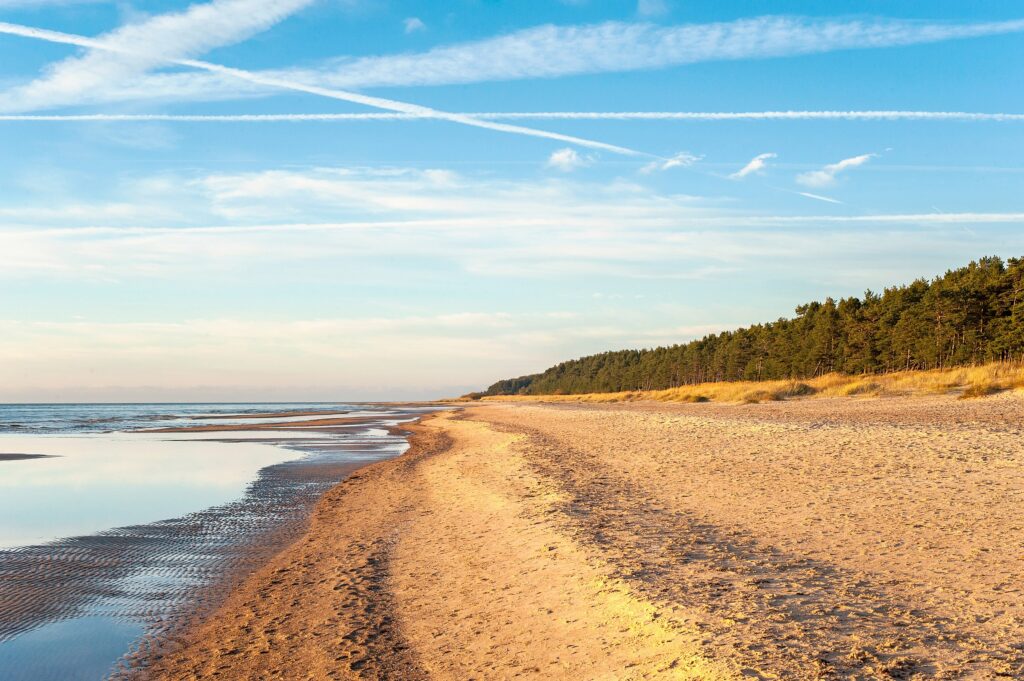 AnnaElizabethPhotography, CC BY-SA 4.0, via Wikimedia Commons
AnnaElizabethPhotography, CC BY-SA 4.0, via Wikimedia Commons5 Fact: Latvians are leaders in environmental efficiency
Latvians have earned a reputation as leaders in environmental efficiency, supported by tangible efforts and notable figures. With a commitment to sustainability, Latvia has implemented efficient waste management systems, leading to a recycling rate of around 45%. Additionally, the country has made strides in renewable energy, with nearly 40% of its electricity generated from renewable sources. These initiatives underscore Latvia’s dedication to minimizing environmental impact and exemplify its role as a noteworthy contributor to global environmental stewardship.
6 Fact: Latvia has tried to establish colonies in the Caribbean and Africa
In the 17th century, the Duchy of Courland and Semigallia, a historic region associated with present-day Latvia, embarked on ambitious colonial ventures. Duke Jacob Kettler aimed to establish colonies in Tobago and Africa. Despite these efforts, the Courland colonies faced challenges and were not sustained, marking a fascinating but brief chapter in Latvia’s historical connection to overseas territories.
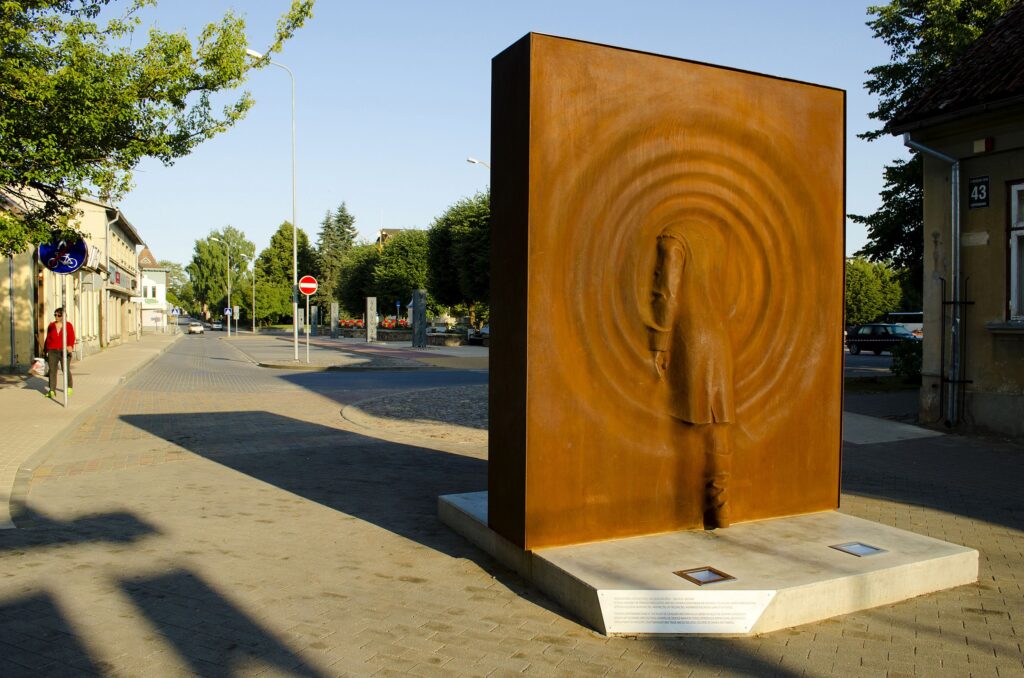 Laima Gūtmane (simka…, CC BY-SA 3.0, via Wikimedia Commons
Laima Gūtmane (simka…, CC BY-SA 3.0, via Wikimedia Commons7 Fact: Latvian has only one related language – Lithuanian
Latvian stands as a distinctive language within the Baltic language group, with Lithuanian being its sole surviving relative. These two languages share a common ancestry within the larger Indo-European language family. As of now, Latvian and Lithuanian are the only Baltic languages that have endured the test of time. This linguistic bond reinforces the cultural and historical connections between Latvia and Lithuania, encapsulating a shared heritage dating back through the ages.
8 Fact: There are “non-citizens” in Latvia who reside there
Latvia has a unique category of residents known as “non-citizens,” primarily consisting of ethnic Russians and other non-Latvians who were residing in Latvia at the time of its independence restoration in 1991. While non-citizens have the right to reside, work, and access social services in Latvia, they face restrictions on certain rights, such as voting in national elections or holding specific government positions. This distinctive status has sparked discussions and initiatives aimed at addressing the rights and integration of non-citizens within the country.
9 Fact: In Latvia, people like to live in the countryside in the summertime
Enjoying the countryside during the summertime is a cherished tradition in Latvia. Many Latvians find joy in escaping to rural areas, where they can revel in the natural beauty, tranquility, and fresh air. Picking berries and mushrooms is a popular summer pastime, with forests offering a bountiful harvest. This activity not only provides a connection to nature but also yields delicious ingredients for traditional Latvian dishes. The countryside retreats become vibrant with the laughter of families and friends, creating lasting memories amidst Latvia’s picturesque landscapes.
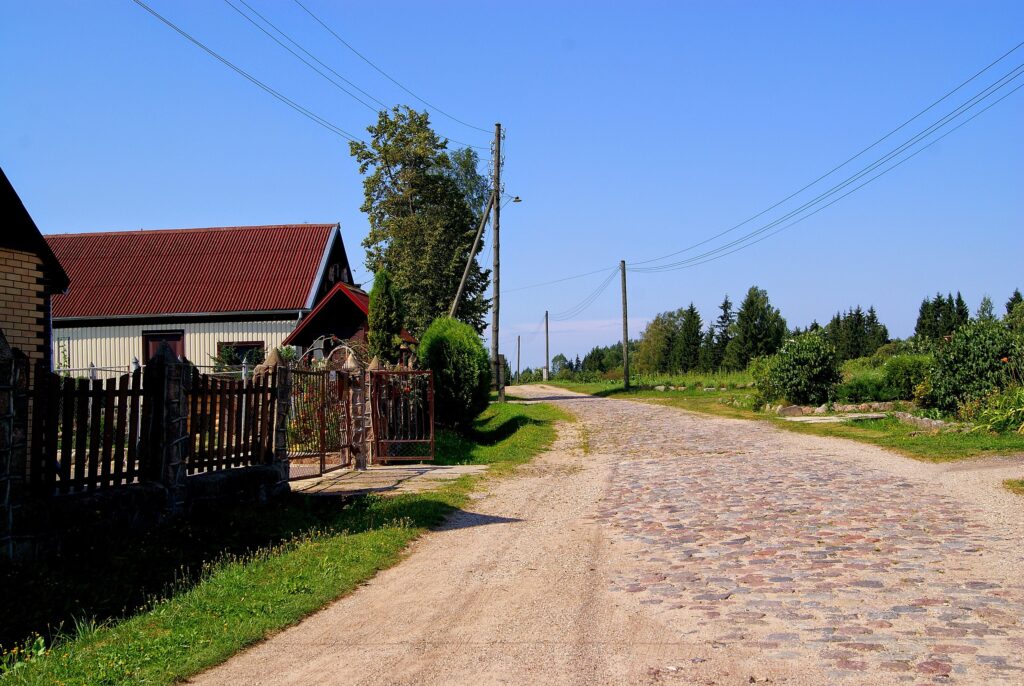 Modris Putns, CC BY-SA 3.0, via Wikimedia Commons
Modris Putns, CC BY-SA 3.0, via Wikimedia Commons10 Fact: The majority of believers in Latvia are Lutherans
Lutheranism is the predominant Christian denomination in Latvia, and the majority of believers identify with the Evangelical Lutheran Church of Latvia. The Reformation, led by Martin Luther, had a significant impact on the religious landscape in Latvia during the 16th century. Lutheranism has played a central role in shaping the cultural and spiritual heritage of the Latvian people. While Lutheranism is the largest Christian denomination, Latvia is known for its religious diversity, with Roman Catholicism, Russian Orthodoxy, and other Protestant denominations also having a presence.

